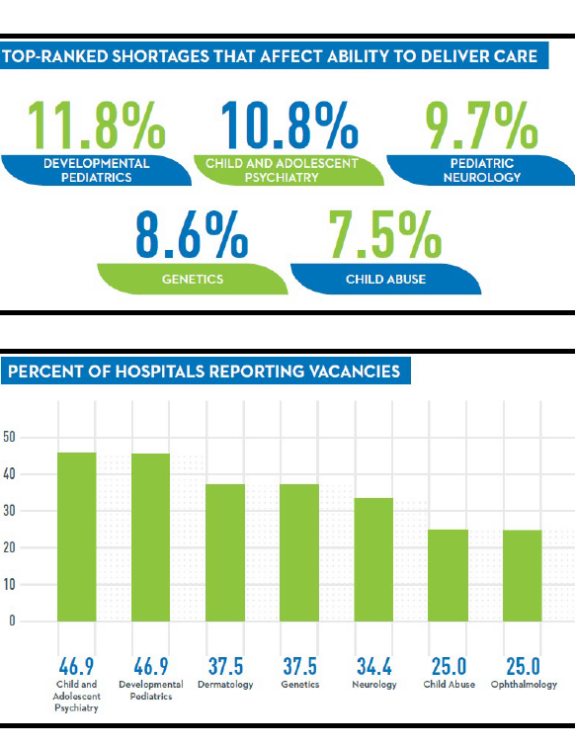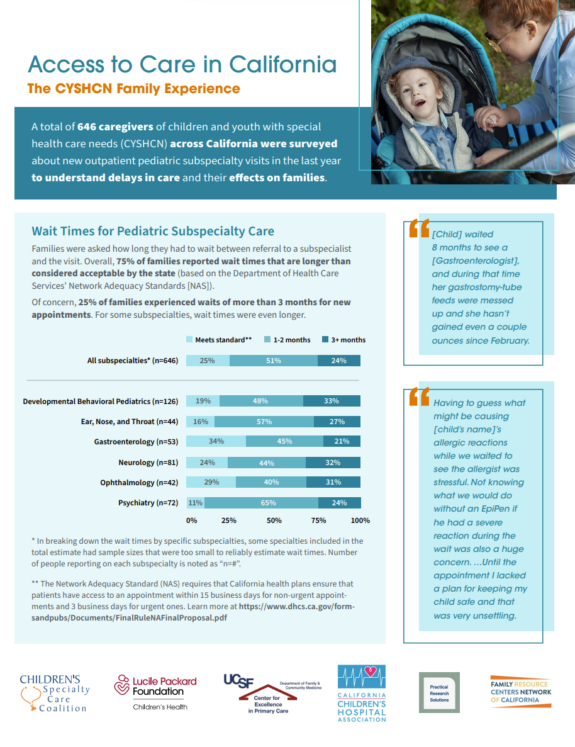California provides many services targeting children with chronic and complex health conditions and their families. Unfortunately, the various programs operate independently, which often leads to an absence of good communication and coordination among programs. Consequently, the burden of locating essential services falls heavily on the parents, who frequently relate that they were unaware of the availability of some services and supports that would have been helpful earlier in the course of their child’s illness and care. Parents report difficulty (1) accessing community-based services, (2) receiving effective care coordination, and (3) receiving care within a comprehensive medical home.
In addition to the difficulty of learning about potentially helpful services, the receipt of timely, appropriate care is hampered by the different eligibility criteria among programs. A single, integrated health and developmental service system for children could solve many problems.
The state’s Department of Health Care Services should create a universal, statewide process that includes identification and referral of all children with complex, chronic health conditions, comprehensive assessment and care planning, whole-family, need-based care coordination, and assurance of ongoing care by a medical home.1“>1
STEP 1: Children having one or more chronic condition, alone or complicated by personal or social factors hampering effective management of their condition, would be identified and referred to a state-authorized Assessment Center, such as county or regional CCS offices and medical therapy units, in conjunction with Regional Centers. Identification and referral could be done by health care providers or a child’s parent (as is the case for the State’s Early Start program), health plans or the Medi-Cal program. Federal law already requires Medicaid programs to identify children with special health care needs when care is being assigned to managed care entities, and those entities are required to assess the child’s needs to identify any ongoing conditions that require further evaluation, treatment, and monitoring.2“>2
STEP 2: At the Assessment Centers, screening for eligibility would be followed by standardized, structured assessment of the child’s health status and health care needs and family circumstances. This would be followed by creation of a family-centered, shared care plan3“>3, referrals to service providers and programs appropriate to the identified needs, and assignment of responsibility for ongoing care and care coordination services. Annual review of the health and service utilization of higher risk children would be a responsibility of Assessment Center staff in partnership with the child’s medical home.
For this process to be successful, agreements to share information among entities, agencies, programs and parents would need to be in place.4 Ideally, this process would be available to all identified children regardless of eligibility for publicly financed health care, and offered as a state-funded benefit for all resident children or as a public-private partnership.
Developing a statewide network of Assessment Centers and implementing standardized but individualized protocols has the potential to improve the health and well-being of the population of children with chronic and complex conditions, improve the health care experience for children and their families, and control costs by providing the right care to the right child at the right time.
1. Children with Special Health Care Needs in California 2012: A Profile of Key Issues. Lucile Packard Foundation for Children’s Health. January 2013.
2. Jee J, Nagarajan J, and Hess C. Identification and Assessment of Children and Youth with Special Health Care Needs in Medicaid Managed Care: Approaches from Three States. National Academy for State Health Policy. December 2013.
3. McAllister JW. Achieving a Shared Plan of Care with Children and Youth with Special Health Care Needs. Lucile Packard Foundation for Children’s Health. May 2014.
4. AB 99 Steering Committee Regarding Health Care for Women, Children, and Adolescents in California. Delivering the Future. California State Department of Health Services. December 1992.



